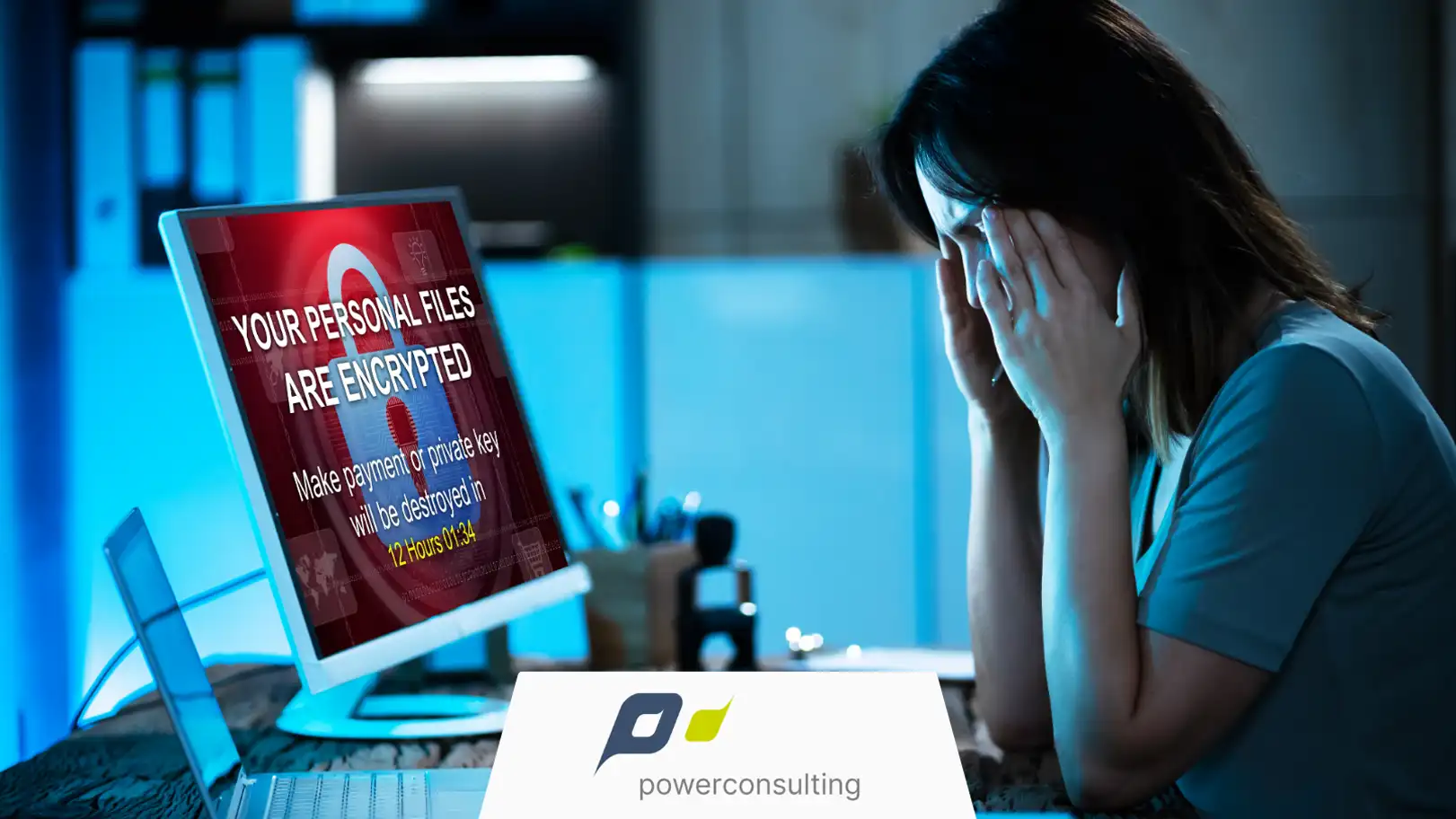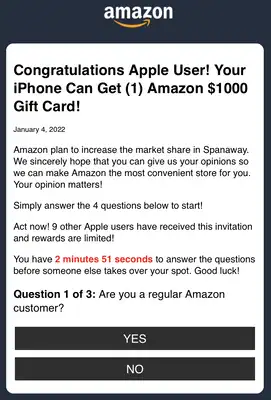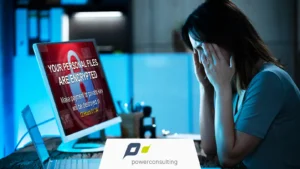
Imagine one day you wake up to find unexpected charges on your credit card, or you receive a text from a friend asking why you sent them a strange link. These are not just random mishaps; they might be indicators that your personal information is no longer private.
In the digital age, our lives are intricately woven into the fabric of the internet, making the security of our digital identities paramount.
Recognizing the early signs of hacking into your digital accounts is crucial in preventing further damage and reclaiming your digital autonomy. It’s alarming to note that, on average, there is a hacker attack every 39 seconds, underscoring the relentless threat that individuals and businesses face in the digital realm.
As Chis Power, CEO of Power Consulting, says, “Protecting your digital assets is as crucial as locking your front door—don’t leave it open to hackers.”
So the question is, how can you tell if you have been hacked?
Let’s explore the telltale signs that suggest your digital space might be compromised and the steps you can take to safeguard your online presence.
How to Know if You’ve Been Hacked? 10 Warning Signs
1. Unusual Account Activity
Worried Your Digital Presence Could Be the Next Target for Hackers?
With Power Consulting, enhance your cyber resilience and stay ahead of hackers.
2. Financial Discrepancies
Should you notice transactions on your bank accounts or credit card activity that you cannot recall making, it’s a red flag. Hackers often target financial accounts to make unauthorized purchases or transfers. Monitoring your financial statements regularly is key to swiftly detecting and addressing such discrepancies.
3. Performance Issues
Malicious software or unauthorized processes running in the background can significantly slow down your device. If your computer or smartphone suddenly becomes sluggish without a clear reason (like new software installation or full storage), it might be under the influence of malware or other intrusive software.
4. Spam Messages
If your friends or contacts report receiving unusual text messages on their phone number or emails from from email addresses you don’t recognize, it’s possible that your account is being used to spread spam or malware. Hackers often hijack accounts to send phishing emails or malicious links to your contact list.
5. Ransomware Messages
One of the most direct indications of a hack is a ransomware attack, where your files are encrypted, and a payment is demanded to unlock them. Seeing a message demanding payment in exchange for your data is a surefire sign that your device has been compromised.
6. Suspicious Pop-ups
Constant pop-ups, especially those prompting you to install software or claim a prize, are often signs of adware or malware infection. These pop-ups might try to trick you into downloading more malicious software or giving away personal information.

Source: Cybernews
7. Unauthorized Changes
If you notice new programs that you didn’t install, changes to your homepage, or alterations in your system’s settings that you didn’t make, your device has likely been compromised. Such changes can indicate that malware or a hacker has gained partial control over your device.
8. Antivirus Alerts
Reliable antivirus software is critical in identifying and notifying you of potential threats. If your antivirus starts sending you warnings or detects malware, it’s a clear sign that your device’s security is at risk.
9. Unfamiliar Browser Toolbars
Toolbars or extensions that appear in your browser without your knowledge can indicate unwanted software installations. These toolbars might monitor your browsing activity, collect personal data, or display additional ads.
| More resources you might like: |
10. Redirected Internet Searches
If your search queries redirect you to unexpected or suspicious websites, it could be due to malware or a compromised internet browser. This type of behavior is often designed to generate ad revenue or steal your personal information.
Risks of Being Hacked
- Business Shutdown: 60% of small businesses close within 6 months of being hacked, highlighting the severe impact a cyber attack can have on business sustainability.
- Financial Loss: Hacking can lead to significant financial loss, not just in terms of stolen funds, but also due to the cost of rectifying the breach, legal fees, and lost revenue.
- Reputation Damage: A company’s reputation can be severely tarnished after a hack, leading to lost trust among customers and partners, which can be difficult to rebuild.
- Legal and Compliance Issues: Businesses may face legal penalties and compliance issues if sensitive data is compromised, especially if they are found to have neglected proper cybersecurity measures.
- Operational Disruption: Hacking can cause major operational disruptions, affecting daily business processes and leading to costly downtime.
How to Protect Yourself from Being Hacked
| Action | Description |
| Change Your Passwords | Immediately change the passwords of all affected and related accounts. |
| Use Strong Passwords | Create unique and strong passwords for each of your online accounts. |
| Use a Password Manager | Store your passwords securely and avoid using the same one for multiple accounts. |
| Contact Financial Institutions | If financial information is involved, contact your bank or credit card company to alert them of the situation. |
| Update Your Software | Ensure all your software, especially security software, is up to date. |
| Run Antivirus Scans | Conduct thorough scans to identify and remove any malicious software. |
| Alert Friends and Family | Notify your contacts to avoid falling for potential scams originating from your accounts. |
| Monitor Your Accounts | Regularly check your accounts for any unusual activities. |
| Report the Incident | Notify the relevant authorities or organizations about the breach. |
Secure Your Digital Footprint with Power Consulting
The digital age brings immense convenience, but at the cost of increasing our vulnerability to hacks. Being proactive about your digital security is not just advisable; it’s imperative.
| Discover Trusted Cybersecurity Services in NYC |
Power Consulting, a leading cybersecurity company with over 30 years of experience, understands the nuances of digital threats and offers robust solutions to protect your digital presence.
Don’t wait until you are hacked to call them; an ounce of prevention is worth a pound of cure.
Contact us today to schedule your free consultation to take rational and measured steps toward security your business and its digital assets.




